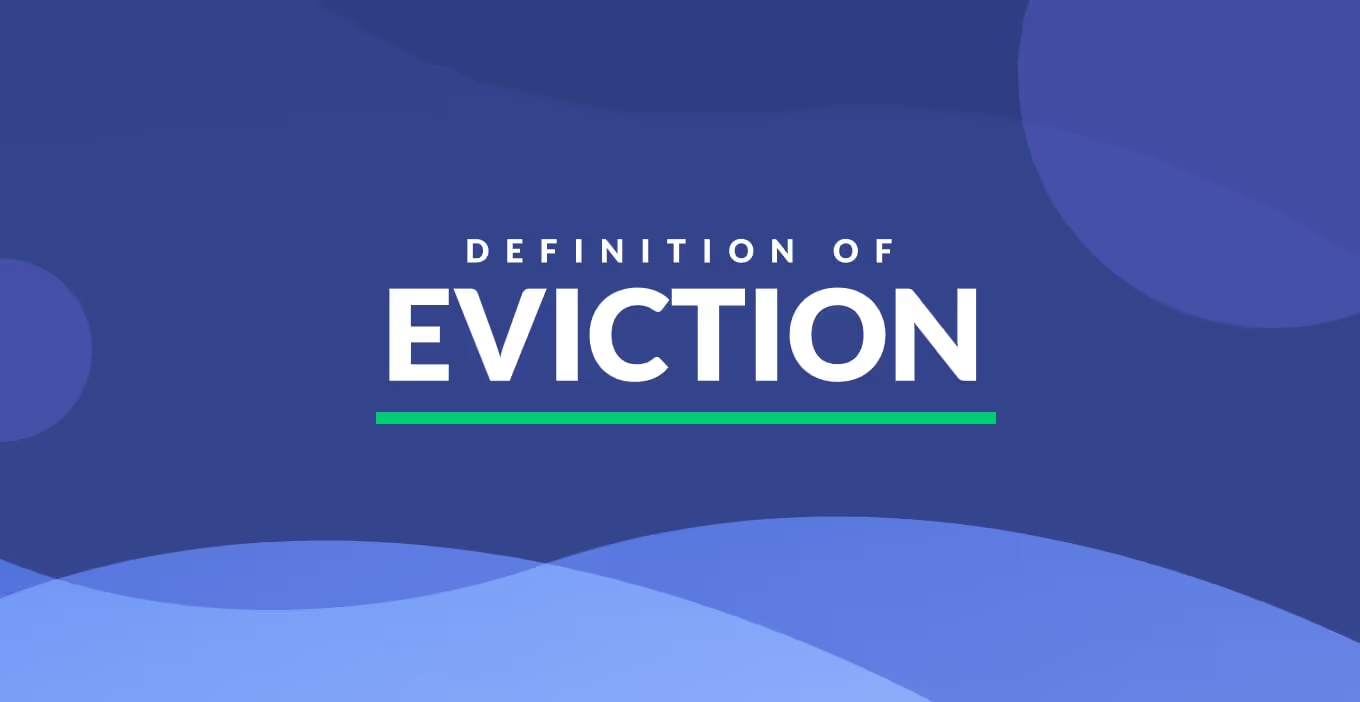Do you know what the definition of eviction is? The process of legally removing a tenant from a rental property is known as eviction. It's usually a civil procedure but can sometimes end up turning nasty.
One of the main reasons for an eviction notice is when the tenant stops paying rent. That breaches the terms of the lease or rental agreement and puts the homeowner at a loss.
There are other situations where a person can be evicted, but legal action needs to take place.
Certain municipalities and individual states manage eviction notice services in the United States. The homeowner must serve tenants with an eviction notice stating the reason and details of the eviction process.
The Legal Process
A rental property lease agreement subjects all parties to the landlord-tenant law. That means a landlord cannot evict a tenant without a proper reason.
Some causes for constructive eviction can be damage, illegal activity, nonpayment, and violating the terms of a lease.
Eviction can also be served if the homeowner wishes to take possession of the property. One of the most common reasons evictions occur is due to unpaid rent.
Check Your States Laws
In some states, property owners can evict tenants even if they have not caused any trouble. These particular renters may have a leg to stand on in states that allow no-fault evictions. The court would need the action to be a discriminatory or retaliatory eviction.
Laws vary by municipality and state, but the eviction process is relatively uniform. The landlord needs to issue an eviction notice to their tenant, giving them a certain number of days to pay outstanding rental or repair damages.
If there has been no resolution after the due date and the landlord decides they have enough, an eviction lawsuit can be filed. The complainant can seek financial compensation for damages to the land, utility costs, unpaid rental, late fees, and court bills.
Eviction Notice
Eviction notice cases are typically heard in housing courts, small claims courts, or district courts. Both tenants and landlords are expected to attend the hearing and may also seek legal representation.
The courts require that you have evidence of the issues you are having with the tenant. That can include text messages, witness testimonies, photos, emails, previous eviction notices, and other documents.
A judge listens to the testimony and checks out any evidence before proceeding to the decision-making process. The actual eviction case can go in two directions; either the landlord's claim is denied, or the tenant gets evicted.
The judge decides any monetary damages in the case after the hearing. If the tenant fails to appear in court, an eviction judgment is automatically placed on them. This, of course, also depends if the landlord or legal representative is present.
Landlords can remove unruly tenants through unlawful detainer. That can include individuals who don't pay their month-to-month tenancy.
It can be a costly process, but the landlord must protect their premises through eviction proceedings. The interest in their home is more important than the cost of the hearing because if the property is damaged, the landlord could lose out on money.
Eviction Process
When an undesirable tenant is evicted, the landlord can rent their property to better and more responsible tenants.
Tenants can feel the effects of eviction over a long period of time; for example, when an individual applies for a new rental application, the landlord askes if they have been in an eviction previously.
Having previous eviction notices might not completely disqualify an individual from renting. Some landlords may seek more information about the terms of the eviction.
In some cases, the landlord decides to sell their apartment as a condominium and legally evict the tenant. If this was the case, it is unlikely that the landlord's view of you would be negatively affected.
The Effects of Eviction on Society
Studies have shown that high eviction rates of real property in society have detrimental effects on the population's well-being.
It destabilizes wholly deprived families, causing hurt and suffering—high eviction neighborhoods tend to be more susceptible to crime, drug abuse, and domestic violence.
Cities are affected by total eviction rates as it comes at steep financial costs for the municipality. In some cases, the state loses out on outstanding utility bills, property taxes, and may need to spend more on social services and shelters.
Eviction and COVD-19
During the beginning phases of the pandemic, congress prohibited eviction through the Coronavirus aid and relief act. Physical expulsion from federally back mortgages and federal housing assistance were banned for 120 days.
The initial ban ended on July 24, 2020, and stopped landlords from filing eviction notices due to nonpayment. Research shows that the moratorium applied to 30% of the nation's 45 million renters at the time.
Evictions were banned on public health grounds by The Center for Disease Control and Prevention. This order was issued on September 4, 2020, and has been lengthened several times. That was due to the increased spread of the Delta variant.
On August 3, 2021, the CDC temporally banned evictions in states with high or substantial levels of community spread.
Eviction Protection
Up until today, some states still have protections and other constructive eviction bans in place. That helps to stop an eviction or physical expulsion during the pandemic.
Qualifying for the moratorium requires that the renter made less than $99,000 per year. A declaration must be signed to prove that they have tried everything in their power to pay rent and could become deprived due to eviction.
On September 24, 2021, The Federal Housing Finance Agency (FHFA) mentioned that Freddie Mac and Fannie Mae would continue to help multi-person premises owners who experienced financial downfall due to COVID-19.
Conclusion
Eviction is never a fun procedure for any party involved. Furthermore, not only is it costly, but it can also be a tedious process that could end in physical removal.
Since the COVID-19 pandemic, the increase in evictions has risen. People have struggled to pay rent while providing for their families.
Luckily most states have stepped in to offer relief for such individuals, so at least we can see some progress.
However you look at it, default on rental payment is something you don't want to do. Make sure you are on the right side of the law by keeping your landlord informed of any payment issues you might have.
Frequently Asked Quesitons
What is the definition Of Eviction?
An eviction is the process of legally removing a tenant from a rental property. The reason for an eviction to occur may vary but is typically due to nonpayment of rent. Although it is usually a civil procedure, an eviction can lead to disagreements between the parties.




.svg)
.svg)

